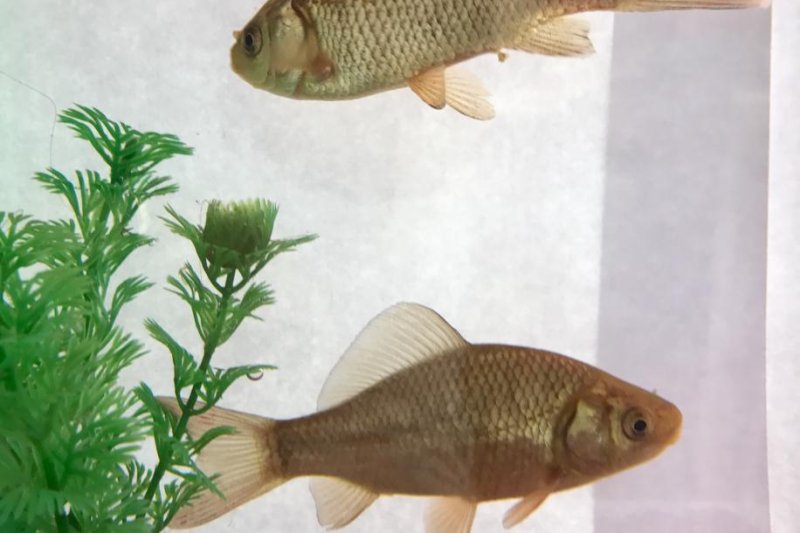Researchers found fish with plastic nanoparticles in their brains ate food slower and were less likely to explore their surroundings. Photo by Christer Brönmark/Lund University
Sept. 25 (UPI) -- Fish may be suffering brain damage as a result of plastic pollution. New research shows plastic nanoparticles can end up inside the brains of fish.
"Our study is the first to show that nanosized plastic particles can accumulate in fish brains," Tommy Cedervall, a chemistry researcher at Lund University in Sweden, said in a news release.
Cedervall and his colleagues tracked the path of tiny plastic particles through marine food chains. The nanoparticles can be consumed by plankton, and the plastic-stuffed plankton can be eaten by fish. If the plastic particles are small enough, they can sidestep the blood-brain barrier and accumulate inside a fish's brain.
In tests, researchers found fish with plastic particles inside their brain tend to eat slower and spend less time exploring their surroundings. Brain damage caused by the tiny plastic beads may explain the strange behavior, researchers hypothesized.
Cedervall and his colleagues detailed their discoveries in a new paper, published this week in the journal Scientific Reports.
The new research produced a number of surprises. Scientists found smaller nanoparticles were proved more potent than larger plastic particles when consumed by plankton. Nano-sized particles killed plankton, but the tiny organisms were unaffected by larger plastic beads.
The research offers new insights in the significant impacts plastic pollution can have on a marine ecosystem.
"It is important to study how plastics affect ecosystems and that nanoplastic particles likely have a more dangerous impact on aquatic ecosystems than larger pieces of plastics," said Cedervall.
Scientists found no evidence plastic nanoparticles can accumulate in other types of tissue in the fish. As such, researchers don't believe humans are at risk of acquiring plastic nanoparticles through fish consumption.















